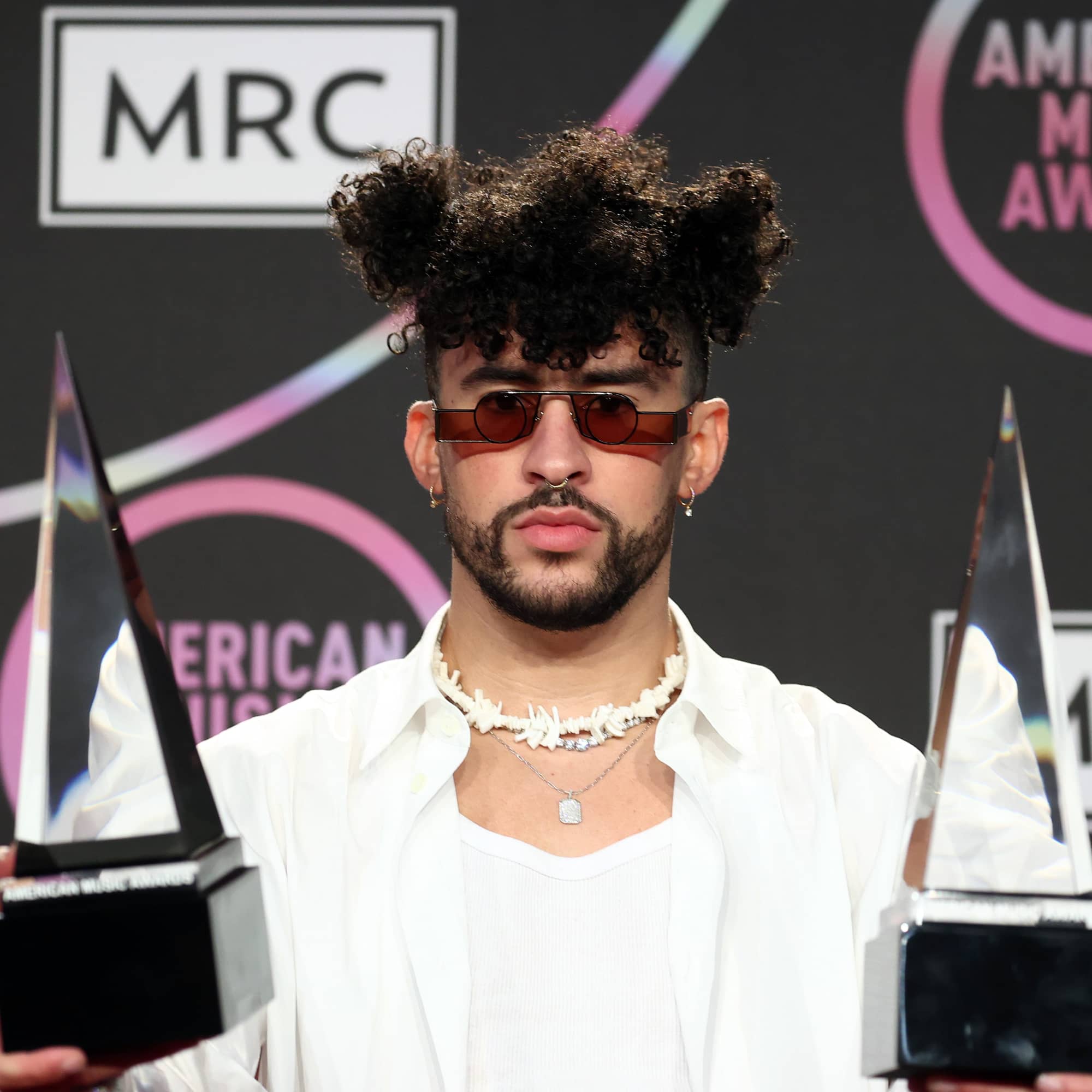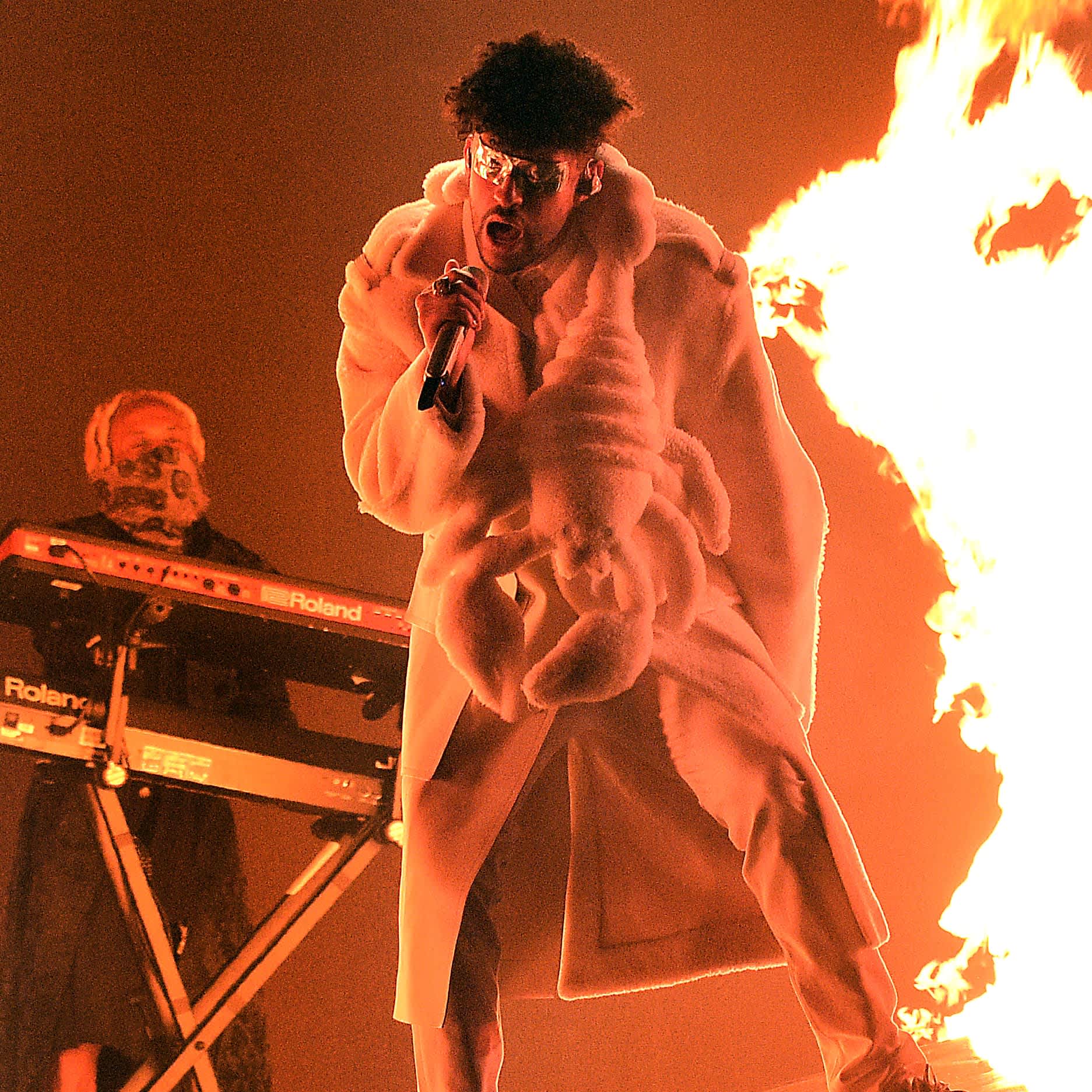
- POPSUGAR Australia
- Celebrity
- Not Assimilating to English Has Become the Secret to Bad Bunny's Success
Not Assimilating to English Has Become the Secret to Bad Bunny's Success

Latinx artists trying to make their way into the American market by singing in English seems to be a tale as old as time for our community. We’ve seen Marc Anthony, Shakira, and Enrique Iglesias do it and transition into very successful pop stars. Even the movie Selena highlighted the late Selena Quintanilla’s transition into the American market.
While scrolling through Instagram as the AMAs were happening, I stumbled upon a red carpet interview that Bad Bunny did in English, where the reporter asked him about his music and his thoughts on being one of the most nominated acts of the night. He paused for a short moment and candidly answered, “Te voy hacer bien claro, no entiendi que dijsite, which translates in English to “I didn’t understand what you said.” At that very moment, he was no longer Bad Bunny, the artist with multiple nominations, or Spotify’s Top Artist of 2020, with more than eight billion streams. He was Benito Antonio Martínez Ocasio, the kid from Puerto Rico who made it, and his honesty was quite endearing. It also seems to be the secret behind his success. Benito has done such an exceptional job of allowing the Latinx community to feel extremely proud of our roots, our Latinx culture, and all the stories that come along with it. As the king of Latin trap, he has been intentional about his music remaining in Spanish, refusing to whitewash his music to make it palatable to non-Latinx fans. He’s even collaborated on songs with mega-stars such as Drake under the condition that the song must be sung in Spanish. It’s no wonder that one of his most successful albums is YHLQMDLG, an acronym for Yo Hago Lo Que Me Da La Gana (I Do Whatever I Want).
Bad Bunny’s mantra Yo Hago Lo Que Me Da La Gana is a reminder to be proud of who you are and where you come from, and to go after what you want. The Latin Trap artist is constantly seen shouting out his native Puerto Rico. He’s also been outspoken about trans rights and women’s rights, and has been especially vocal about politics when it pertains to the corruption in Puerto Rico’s government. He’s refused to assimilate, and yet has still managed to launch himself into mega-stardom success. He’s done it authentically on his terms.
It seems that American culture has conditioned us to believe that in order to be successful in this country, we have to assimilate to whiteness by erasing our brown and Black narratives along the way. We’ve been conditioned to believe that blonder the hair, the bluer the eyes, and the fairer the skin would always translate to more success. Yet, it’s always a breath of fresh air when Latinx artists do the complete opposite. Finding strength in your roots while embracing your heritage in its fullness has almost become one of Bad Bunny’s superpowers: superpowers which have landed him spots on Saturday Night Live (SNL), The Tonight Show Starring Jimmy Fallon, Netflix’s Narcos and even allowed him to debut his skills inside the WWE ring.
In a time where celebs try to pass off every nip, tuck, and photoshop as authentic, seeing one of the biggest artists in the world so candidly admit that he didn’t understand that reporter was quite refreshing. And, of course, he answered in Español first. It’s an attitude that many Latinx music artists today have adapted. Gone are the days when you needed to sing in English in order to crossover to the American or global market. J Balvin is another Latinx artist who has refused to do his music in English. Latinx artists are recognising that they can, in fact, experience success and stardom by staying true to their culture and music sung in their native Spanish language. Artists like Bad Bunny have managed to cross over strictly singing Spanish. In fact, Bad Bunny has taught this generation of Latinxs that we don’t have to be ashamed of who we are, where we come from, and of our stories. That in fact, we can actually use them to amplify voices in our community and elevate, uplift, and most importantly celebrate who we are and as a people. That is our superpower!


